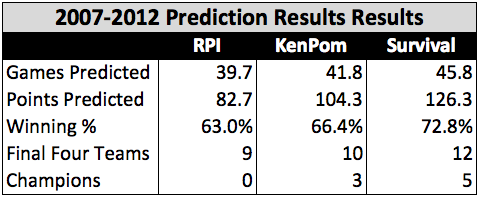It's just another data point. They did have a couple of scrappy wins against Notre Dame and Clemson in overtime sandwiching that State game where they showed they had courage, intestinal fortitude, and are clearly the top of team who has lots of success in the postseason though! That is until they lost to UVA by three, losing their resolve to win close games.
Notre Dame and Clemson: Not in the tournament.
UVA and NC State: In the tournament.

